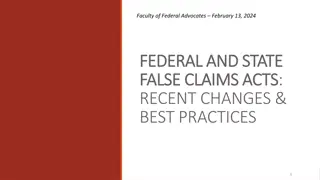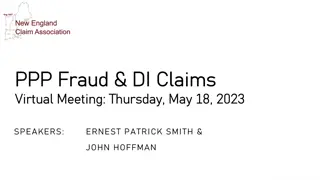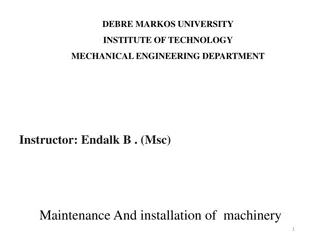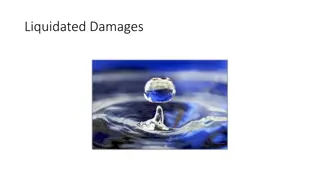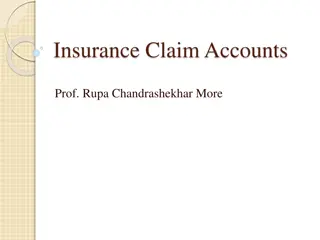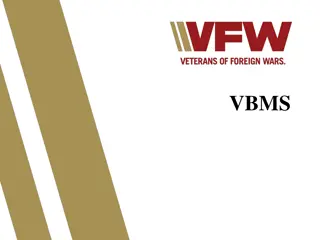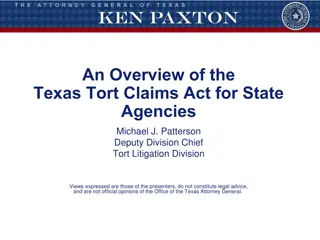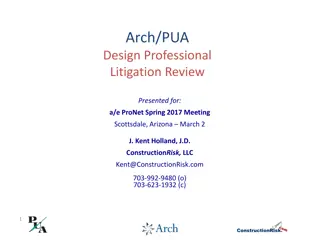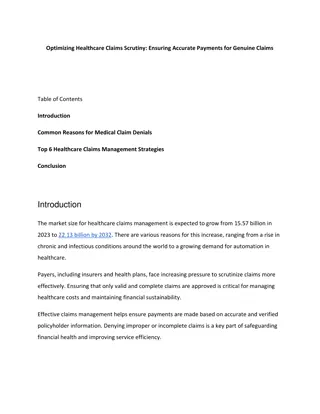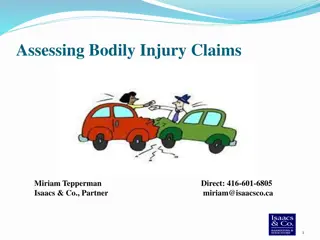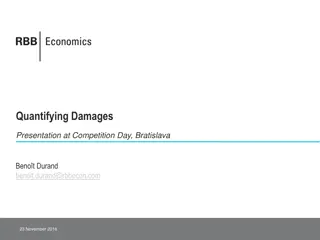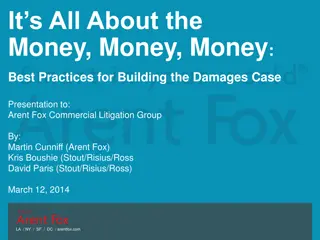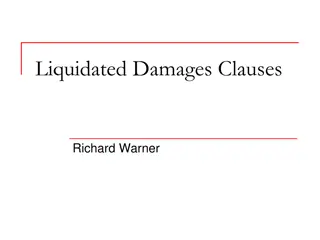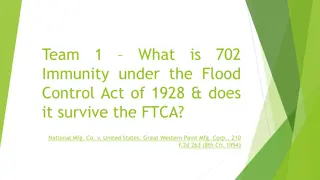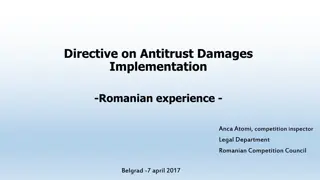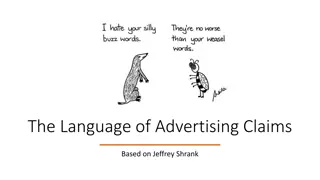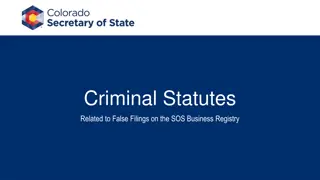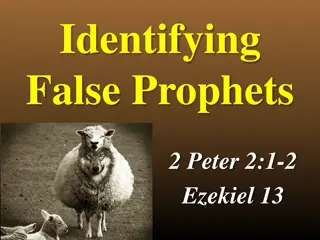Calculating Damages Under the False Claims Act
The False Claims Act allows the government to recover damages from individuals who defraud them. Damages are typically three times the amount of losses caused by the fraudulent act. Various methods can be used to calculate damages, such as determining the difference between what was paid and what would have been paid if the claims were true. Each fraud case requires a unique approach to establishing damages directly caused by the violation, ensuring fair reimbursement without creating a windfall for the government.
Download Presentation

Please find below an Image/Link to download the presentation.
The content on the website is provided AS IS for your information and personal use only. It may not be sold, licensed, or shared on other websites without obtaining consent from the author.If you encounter any issues during the download, it is possible that the publisher has removed the file from their server.
You are allowed to download the files provided on this website for personal or commercial use, subject to the condition that they are used lawfully. All files are the property of their respective owners.
The content on the website is provided AS IS for your information and personal use only. It may not be sold, licensed, or shared on other websites without obtaining consent from the author.
E N D
Presentation Transcript
Calculating Damages under the False Claims Act When a person acts to defraud the government, that person can be made to pay three times the damages caused by the act of that person. 31 U.S.C. 3729(a). How do you calculate the amount of damages?
Formula for Damages Directly Caused By False Claim Each individual fraud case involves unique facts to establish damages directly caused by FCA violation. BMY-Combat Systems Div. of Harsco Corp. v. United States, 44 Fed. Cl. 141 (Fed. Cl. 1999) Ordinarily, damages are the amount paid out by reason of the false claims over what would have been paid had claims been true. United States v. Woodbury, 359 F. 2d 370 (9thCir. 1966)
Any Reasonable Method [T]he Supreme Court will consider any reasonable method of calculating damages which will fairly reimburse the government for its losses and expenses, without creating a windfall for the government. U.S. ex rel. Roby v. Boeing Co., 79 F.Supp.2d 877 (D. C. Ohio 1999), aff d on other grounds, 302 F.3d 637 (6th Cir. 2002)
If Truth Known, Would the Government Have Paid? Amount of the False Claim MINUS Amount the Government would pay knowing the truth. United States ex rel. Marcus v. Hess, 317 U.S. 537, 543-44 (1943) (Bid rigging) Damages should make the government whole. (Restitution-like)
Types of Contract Fraud Product Substitution The Difference between the Value of that provided and the Value if as Specified - United States v. Bornstein, 423 U.S. 303 (1976); United States v. American Packing Corp., 125 F. Supp. 788 (D. N.J. 1954) (Benefit of the Bargain) (Some substituted goods may have no value.)
Types of Contract Fraud Failure to Test/Falsifying Test Results Difference between value of product not tested and value if it had been tested Also damages for any testing costs claimed.
Failure to Test - US ex rel. Compton v. Midwest Specialties, 142 F.3d 296 (6th Cir. 1998) (Products had no value. None were of quality required no assurance of quality by testing.)
Costs to Remedy Defects Commercial Contractors v. US, 154 F.3d 1357 (Fed. Cir. 1998) - Deficient performance where value cannot be reasonably calculated, use alternative basis what will it cost to fix it the way it should have been? BMY Combat Systems v. US, 44 Fed. Cl. 141 (1998) (costs of inspecting, repairing, manufacturing replacement products, PLUS interest on premature payments for untested products.)
Types of Contract Fraud Premature Claims for Progress Payments - Fixed Price Contract front-loaded claims for progress payments damages based on amount of payment not yet due, not simply cost of money/interest. Young- Montenay v. United States, 15 F. 3d 1040 (Fed. Cir. 1994).
Types of Contract Fraud Fraud to Induce Contract Award - (Fraud in the Inducement )- e.g., violation of Truth in Negotiations Act (TINA); False Cost or Pricing Data See Harrison v. Westinghouse Savannah River Co., 176 F. 3d 776, 792 (4th Cir. 1999) Damages are the amount of each claim presented. [T]aint entered into every swollen estimate which was the basic cause for payment of every dollar paid by the [government].
Types of Contract Fraud Fraud in the inducement - Fraudulent Loan Application (False statement to get loan guaranteed by government) -Costs incurred by government when defendant defaults.) U. S. v. Hill, 676 F. Supp. 1158 (N.D. Fla. 1987)
Types of Contract Fraud Fraud in the inducement (False statement to get loan guaranteed by government) - Costs incurred by government when defendant defaults.) U. S. v. Hill, 676 F. Supp. 1158 (N.D. Fla. 1987)
Types of Contract Fraud Kickbacks - Damages may be the amount of the kickbacks paid (and were nearly so in this case) but the amount of the kickbacks is a relevant factor to consider.) U. S. v. Killough, 848 F.2d 1523 (11th Cir. 1988)
Types of Contract Fraud Fraud in the inducement But for Test - failure to reveal conflict that may have/would have precluded award of contract Full contract amount. U.S. v. TDC, 288 F.3d 421 (D.C. Cir. 2002)
Types of Contract Fraud Shifting Between Direct and Indirect Charges Amounts shifted that would not have been available if properly administered.
Types of Contract Fraud Shifting Between Different Contracts Amounts used from the contract that were paid for the work on another, different contract that should not have been used to pay for the contract.
Types of Contract Fraud Charging for Labor of Unqualified Persons Contract requires minimum level of education, training, experience; Uses under-qualified personnel, yet bills for qualified personnel. Damages - Difference between the two rates Unless government has full knowledge and accepts work. See U.S. ex rel. Ubl v. IIF Data Solutions, 650 F.3d 445, 453 (4thCir. 2011).


